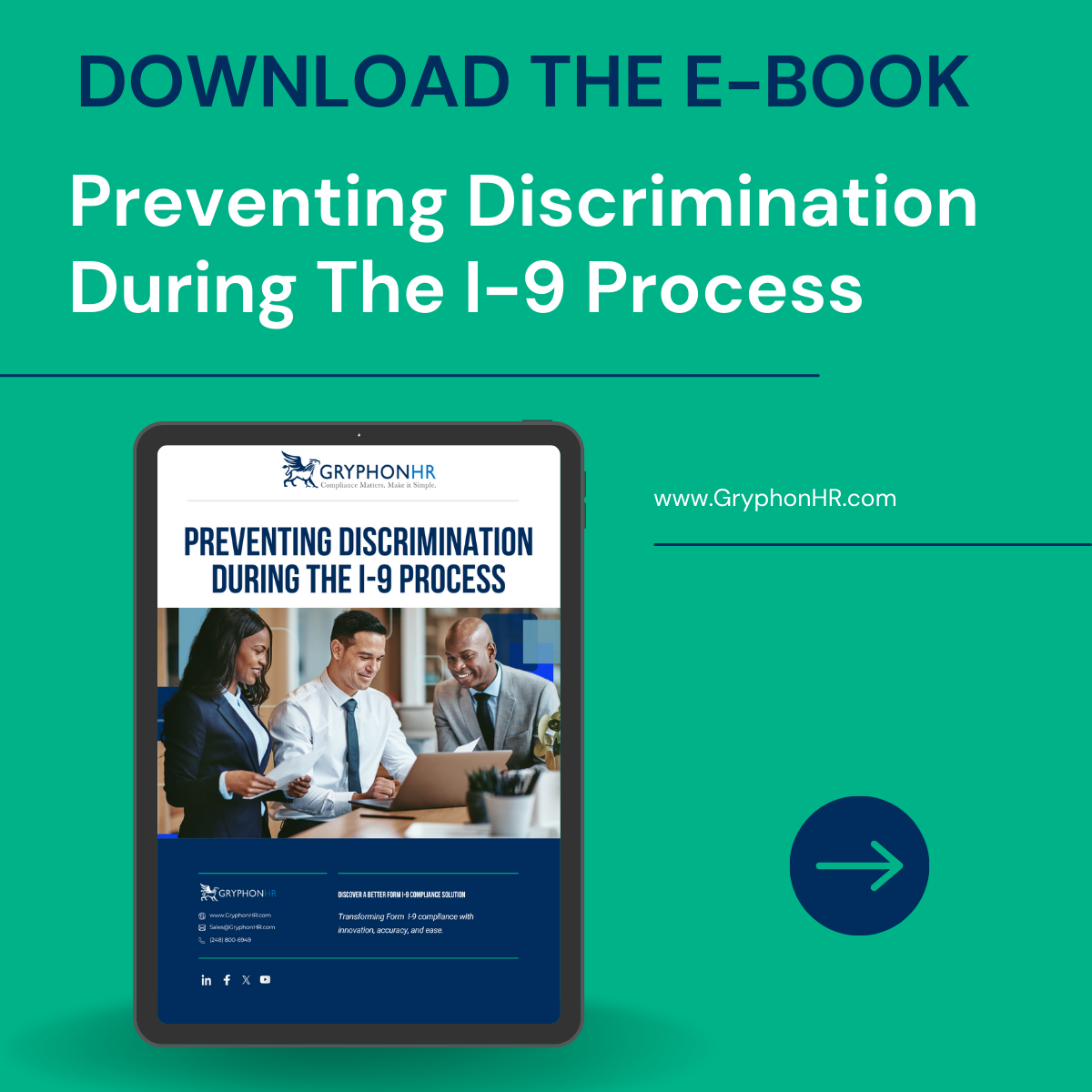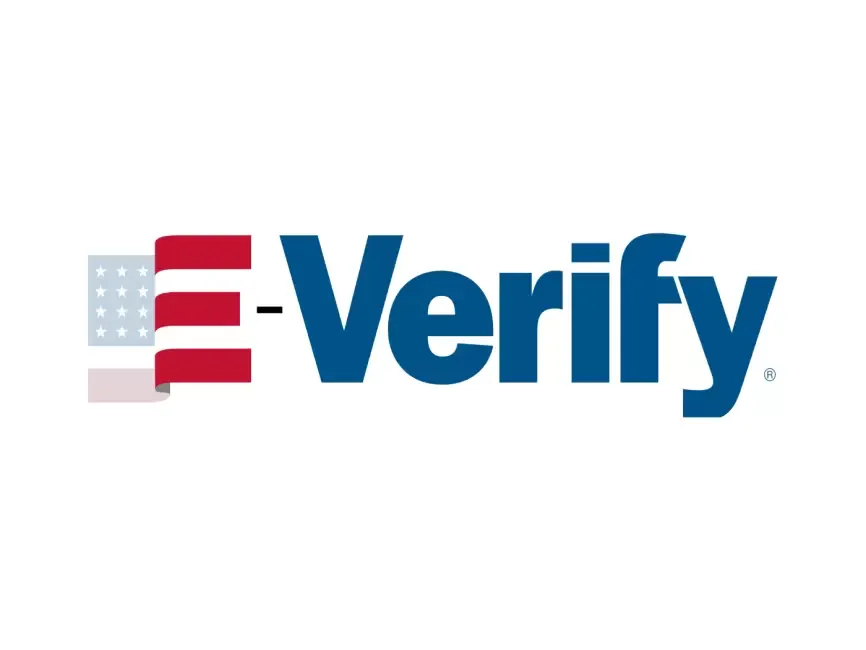Authored By: GryphonHR Blog Contributor
GryphonHR blog contributors include , consultants, researchers, and other subject-matter experts who’ve written content for our blog.
September 5, 2023
Ensuring compliance with Form I-9 requirements and export control laws is crucial for businesses operating in today's globalized economy. Failure to do so can lead to serious legal consequences and reputational damage. In this blog post, we'll delve into the intricacies of Form I-9 discrimination and its intersection with export control laws, providing insights and best practices for businesses to stay on the right side of the law.
Form I-9 is a critical document used by U.S. employers to verify the identity and employment eligibility of every employee, regardless of their citizenship or immigration status. This process helps ensure that individuals are authorized to work in the United States.
Form I-9 discrimination occurs when employers treat individuals differently based on their citizenship, immigration status, or national origin during the hiring process. This is strictly prohibited by the Immigration and Nationality Act (INA).
Export control laws are regulations that govern the export, re-export, and transfer of controlled items, software, technology, and services, in order to protect national security interests. These laws are enforced by various government agencies, including the U.S. Department of Commerce and the U.S. Department of State.
Dual Use Items: Employers must be aware of controlled technologies that may be used in both civilian and military applications. Ensuring compliance with Form I-9 helps prevent unauthorized individuals from accessing these technologies.
Technology Transfers: When hiring foreign nationals or individuals on specific visa types, employers must consider potential export control implications, especially if the employee may have access to controlled technologies.
Consult Legal Experts: Seek legal advice and consultation to ensure compliance with both Form I-9 requirements and export control laws.
The U.S. Department of Justice's (DOJ) recent scrutiny of SpaceX for alleged violations of the Immigration and Nationality Act (INA) serves as a stark reminder of the importance of understanding and adhering to these complex legal frameworks.
The DOJ's 13-page complaint filed against SpaceX on August 23, 2023, alleges that the company engaged in discriminatory hiring practices. These practices allegedly include:
Discouraging Asylees and Refugees: SpaceX allegedly dissuaded asylees and refugees from applying by incorrectly asserting that the company could only hire U.S. citizens and lawful permanent residents.
Failure to Fairly Consider Applicants: The DOJ contends that SpaceX failed to give fair consideration to asylees and refugees who applied for positions at the company, resulting in refusals to hire based on citizenship status.
Exclusive Hiring of U.S. Citizens and Permanent Residents: According to the complaint, from September 2018 to September 2020, SpaceX exclusively hired U.S. citizens and lawful permanent residents, regardless of job roles.
Implications for Employers:
This case emphasizes the need for employers to differentiate between Form I-9 compliance and export control assessments:
Do Not Combine Assessments: Employers should avoid conflating export licensing assessments with the Form I-9 process. These are distinct requirements that should be addressed separately.
Clarify U.S. Person Definition: It's crucial to communicate that "U.S. persons" under export control laws encompass more than just U.S. citizens. This includes lawful permanent residents, refugees, and asylees.
Avoid Restricting Jobs Unnecessarily: Employers should refrain from using export control regulations as grounds to limit job opportunities based on citizenship, immigration status, or national origin.
Provide Training: Ensure that personnel involved in hiring and onboarding receive comprehensive training to prevent discrimination based on citizenship, immigration status, and national origin.
Conduct Targeted Assessments: Only conduct export licensing assessments for positions that involve working with export-controlled items. This step should not be taken for roles that do not require such access.
Inform Candidates: For positions requiring work with export-controlled items, inform all candidates of the purpose of the assessment to promote transparency.
The SpaceX case serves as a reminder that compliance with Form I-9, export control laws, and non-discrimination provisions of the INA is paramount. By understanding and appropriately implementing these legal requirements, employers can ensure a fair and inclusive hiring process while safeguarding national security interests.
The DOJ reached a settlement with General Motors (GM) earlier this year determining that GM discriminated against non-U.S. citizens in violation of the Immigration and Nationality Act (INA). The department also announced the release of a new
fact sheet to help employers avoid citizenship status discrimination when complying with export control laws, which govern U.S. companies’ ability to export certain goods and software, technology and technical data. The department’s investigation of GM revealed that the company’s violations stemmed in part from its failure to properly consider the INA’s nondiscrimination requirements when also complying with export control laws..
Navigating the complex landscape of Form I-9 compliance and export control laws is paramount for businesses operating in a globalized market. By understanding the legal requirements and implementing best practices, employers can protect their organizations from legal liabilities and ensure a fair and inclusive hiring process for all individuals, regardless of their immigration status or national origin.
Discover how GryphonHR can help you to create consistent Form I-9 practices to help avoid discrimination.
Get in touch with us to learn more.

Authored By: GryphonHR Blog Contributor
GryphonHR blog contributors include , consultants, researchers, and other subject-matter experts who’ve written content for our blog.
Stay updated on Form I-9 and E-Verify!


Is your I-9 compliance software placing you at risk? Learn more about the compliance requirements for electronic I-9 systems and how to evaluate important features. Skip the form and download this interactive guide!

Avoiding discrimination during the Form I-9 process is critical to preventing liability, hefty fines, and unfair hiring practices. Download our free e-book to learn more.



MENU
STAY CONNECTED
Join our newsletter to learn more about Form I-9.